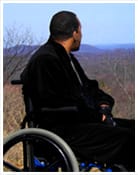A neglectful, careless worker at a nursing home could give your loved one more medication than they actually need, or they could give them two medications that react dangerously with one another. Either way, this could lead to serious complications and could be fatal.
At the same time, nursing home neglect could mean that the staff overlooks clear symptoms of an overdose. When your loved one is at risk, the staff may not do everything they should to keep them safe and healthy.
What are the signs of an overdose? That is part of the problem. It depends on the individual, the medication, the amount they took and a whole host of other factors. Every case is different.
That said, here are a few symptoms to look out for:
- Excessive sweating
- Loss of pulse
- Trouble breathing
- Rapid or slow breathing
- Chest pain
- Cool skin
- A high temperature
- Vomiting and nausea
- Diarrhea
- Abdominal pain
- Blood in the stool
- A slow pulse rate or no pulse at all
- A drop or increase in blood pressure
- Changes to respiratory rate
- Mental confusion
- Fatigue
- Coma
One key thing to remember is that the person may not be able to tell anyone how they feel. They may not understand what happened. It is, therefore, critical that those caring for the elderly person know what the symptoms mean and what steps they should take as soon as the issue becomes clear.
If your loved one suffers harm in a nursing home due to mistakes, errors, neglect and carelessness, you also may want to know what options your family has to seek compensation.

